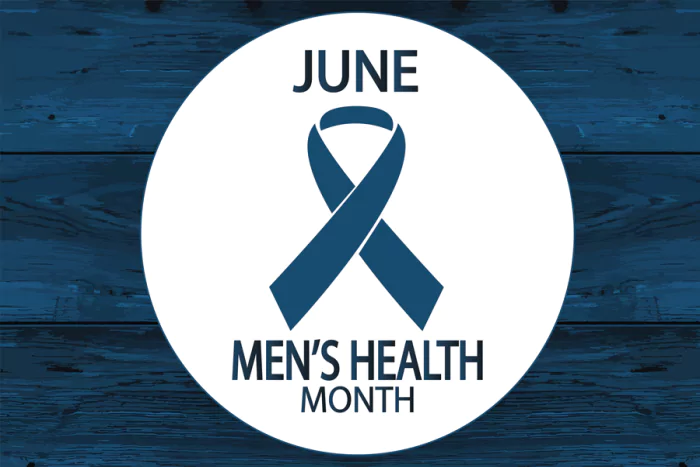Let’s Celebrate National Men’s Health Month
Posted by Century Support Services on Jun 11, 2020

June is National Men’s Health Month. Father’s Day is a great reminder to check in on the men in your life. Not only should you tell them that you love them, but you should check in about their health, too. There is some initial research showing that the COVID-19 pandemic can disproportionately affect men, making it more important than ever to maintain your health.
Know Your Risk Factors
 The first step toward a healthier life is knowing what factors place you at risk. The top five causes of death among men in the United States are heart disease, cancer, unintentional injuries, chronic lower respiratory disease, and stroke. Fortunately, many of these health problems can be prevented with healthy lifestyle changes. Some of the biggest risk factors for men’s health problems are:
The first step toward a healthier life is knowing what factors place you at risk. The top five causes of death among men in the United States are heart disease, cancer, unintentional injuries, chronic lower respiratory disease, and stroke. Fortunately, many of these health problems can be prevented with healthy lifestyle changes. Some of the biggest risk factors for men’s health problems are:
- Smoking. Smoking or using other tobacco products increases your risk of cancer, heart disease, stroke, and respiratory problems. Plus, it makes you vulnerable to severe complications if you get coronavirus. There is no better time to quit than now.
- Poor diet.
- Being overweight or obese.
- Low physical activity.
- Excessive alcohol consumption. The official recommendation is that men should drink no more than two drinks per day. Exceeding this amount increases your risk of health problems.
- Stress and mental health problems. Stress puts you at risk for depression, heart disease, diabetes, and even Alzheimer’s disease.
Five Easy Steps to Improve Your Health
 Overhauling your whole lifestyle can feel daunting. That’s okay. Even small steps can improve your health. Remember, you’re playing the long game. A few changes today can mean years of better health down the road. This month, commit to taking the following five steps to better health:
Overhauling your whole lifestyle can feel daunting. That’s okay. Even small steps can improve your health. Remember, you’re playing the long game. A few changes today can mean years of better health down the road. This month, commit to taking the following five steps to better health:
- Schedule a physical. Getting an annual physical is critical for cancer screening, management of chronic medical conditions, and overall wellness. Plus, an annual physical is covered by insurance under the Affordable Care Act. Call your provider to set up an appointment. If you don’t have a PCP, your insurance company can help you establish care.
- Add fruits and vegetables to your plate. When staying at home more often, many of us are relying too heavily on processed foods, take out, and freezer meals. Rather than trying to overhaul your entire diet, take one or two small steps. Commit to adding one serving of fruit and one serving of vegetables to your daily diet. Once you get in the habit, it becomes easier to get the nutrients you need. Remember, canned and frozen vegetables count, too!
- Take time to destress. Stress level creeping upwards? You’re not alone. Between work responsibilities, kids being home from school, and financial worries, many of us are feeling more stressed than ever. Take 10 minutes each day to practice deep breathing and relaxation.
- Get a good night’s rest as often as possible. Sleep is critically important, but it’s often the first thing to go when life gets busy. Start better sleep habits by making a nighttime routine. Shut off your TV and phone 30 minutes before bedtime. Read, listen to music, or do something else calming.
- Get moving. Barely half of U.S. men get the recommended amount of physical activity. The CDC recommends getting 30 minutes per day, most days of the week. Start by going for a walk, taking a bike ride, or doing some push-ups at home. Every little bit helps.
Men’s Health Month is meant to be a community activity. Although the COVID-19 pandemic means many of us have become more physically distant from our friends and family, it’s still important to stay connected. Recruit a loved one to join you in making changes to improve your health. Together, we can build a healthier society.